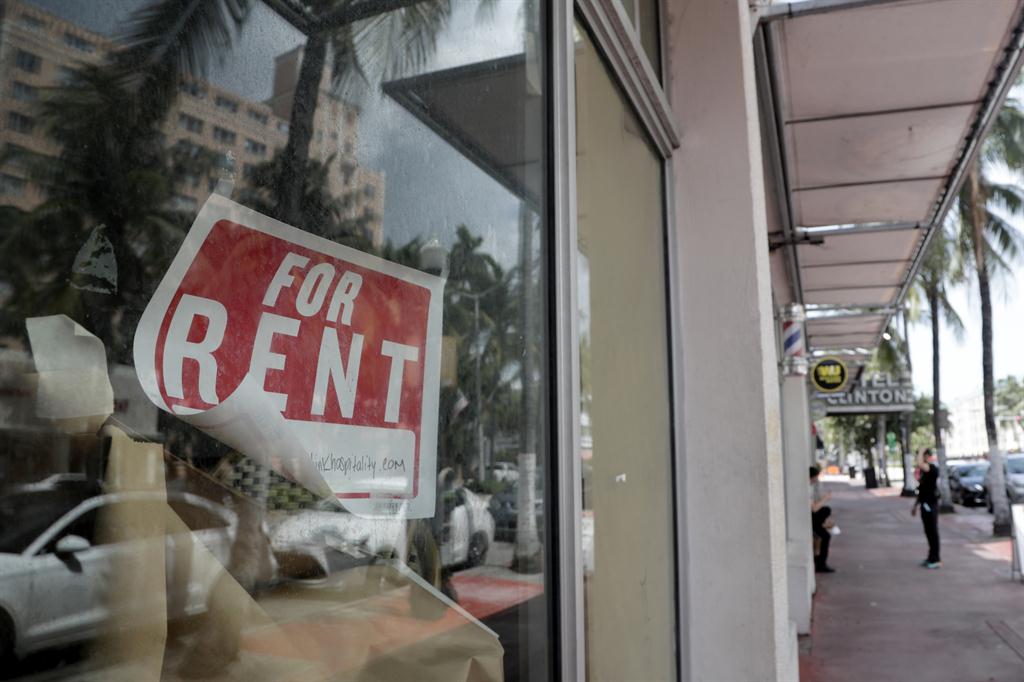Rent in Namibia staggers
The national weighted average rent price fell to N$7 022 at the end of June 2020 from N$7 404 in June 2019.
Phillepus Uusiku - Namibia has seen an unprecedent spike in the number of new Covid-19 cases over the last three months, signalling that the worst economic effects of the pandemic are yet to come.
The halt in normal rental activity by about 49% witnessed over the second quarter was foreseeable as Covid-19 related job losses had a direct material impact on the rental market.
“In the event of a more drawn-out economic recovery, which is very likely, we may see a slowdown in new household formation and a shift towards a multifamily renting culture to save on housing costs”, says FNB Namibia market research manager, Frans Uusiku.
Looking ahead, the impact of Covid-19 on rent prices should further be seen through two lenses. Firstly, how soon the Covid-19 cure is found and secondly how quickly the economy is able to recover.
These dynamics could also mean that competition will remain tight for rental units at the middle and lower ends of the market, while luxury vacancies may become harder to fill, he says.
“Furthermore, as the culture of remote work gains traction, we could also start to see a switch in residential preference, away from inner-city locations towards more affordable suburbs,” he added.
The FNB Rental Index posted a 12-month average growth of 0.3% year-on-year at the end of June 2020 after the short-lived growth momentum of 0.9% and 0.8% year-on-year seen in April and May 2020 respectively.
This brought the national weighted average rent price to N$7 022 at the end of June 2020 from N$7 404 in June 2019.
Segments
While the rental index growth of 0.3% may seem robust by annual comparison recorded at -3.1% in June 2019, the national rent price is the lowest ever recorded in five years over the corresponding periods.
This is reflective of the financial hardship and shifting housing preferences being imposed by the pandemic. In effect, rent prices for the 2-bedroom and “more than 3-bedrooms” segments increased by 0.8% and 4.4% year-on-year, respectively at the end of June 2020, pointing to improved rental opportunities in these markets, Uusiku says.
Conversely, the 1-bedroom and 3-bedroom segments witnessed a contraction in rent prices of 1.6% and 0.3% year-on-year respectively, on the back of weak tenancy demand. The mounting economic consequences of the pandemic appear to force many households to seek more affordable housing options, while property owners are beginning to respond to these new realities by offering low prices in order to fill vacancies.
Rental advertisement volumes contracted in the second quarter by 46.6% quarter-on-quarter and 48.6% year-on-year to 2 824 units. The demand and supply dynamics in the 2-bedroom and more than 3-bedrooms rental segments seem to have fared out well as reflected by a more uniform representation in advertisement volumes over time.
This observation is further justified by the fact that these are the only segments that have consistently maintained positive price growth overtime due to relative affordability and their agility to cater for a broader market class, he says.
Towns
In earnest, prices are responding much more rapidly in the parts of the country most heavily impacted by Covid-19.
Walvis Bay saw the biggest contraction in rent prices of 29.6% year-on-year, followed by Ondangwa (-27.4% year-on-year), Rundu (-25.5% year-on-year), Oshakati (-15.5% year-on-year), Ongwediva (-5.7% year-on-year) and Windhoek (-3.4% year-on-year).
The biggest gainers were Katima Mulilo with 10.0% year-on-year growth in rent prices followed by Okahandja (8.0% year-on-year) and Swakopmud (1.3% year-on-year), Uusiku pointed out.
Deposit to rent ratio
Overall deposits charged by landlords contracted by 30.6% y/y at the end of June 2020 compared to a contraction of 25.6% year-on-year recorded during the same period of 2019.
This was more pronounced in the 2-bedroom and more-than-3-bedrooms segments which contracted by 44.8% and 35.4% year-on-year respectively, compared to contractions of 28.0% and 3.6% year-on-year realized a year ago.
This once again affirms the growing participation of rental activity in these segments as landlords continue to grapple with occupancy issues.
Rental yields
Rental yields slowed to 7.9% at the end of June 2020 from 8.2% recorded 12 months ago. As a generally accepted norm, a rental yield of 7% and more is considered good enough for long term sustainability of the rental market.
This implies that the rental yield of 7.9% remains attractive despite the challenging business environment induced by the Covid-19 pandemic.
Although weak tenancy demand and elevated house prices in the middle to high-end market segments present a downside risk for the stability in rental yields, interest rates on mortgages are currently at historic lows, which could provide some cashflow respite to landlords. – [email protected]
The halt in normal rental activity by about 49% witnessed over the second quarter was foreseeable as Covid-19 related job losses had a direct material impact on the rental market.
“In the event of a more drawn-out economic recovery, which is very likely, we may see a slowdown in new household formation and a shift towards a multifamily renting culture to save on housing costs”, says FNB Namibia market research manager, Frans Uusiku.
Looking ahead, the impact of Covid-19 on rent prices should further be seen through two lenses. Firstly, how soon the Covid-19 cure is found and secondly how quickly the economy is able to recover.
These dynamics could also mean that competition will remain tight for rental units at the middle and lower ends of the market, while luxury vacancies may become harder to fill, he says.
“Furthermore, as the culture of remote work gains traction, we could also start to see a switch in residential preference, away from inner-city locations towards more affordable suburbs,” he added.
The FNB Rental Index posted a 12-month average growth of 0.3% year-on-year at the end of June 2020 after the short-lived growth momentum of 0.9% and 0.8% year-on-year seen in April and May 2020 respectively.
This brought the national weighted average rent price to N$7 022 at the end of June 2020 from N$7 404 in June 2019.
Segments
While the rental index growth of 0.3% may seem robust by annual comparison recorded at -3.1% in June 2019, the national rent price is the lowest ever recorded in five years over the corresponding periods.
This is reflective of the financial hardship and shifting housing preferences being imposed by the pandemic. In effect, rent prices for the 2-bedroom and “more than 3-bedrooms” segments increased by 0.8% and 4.4% year-on-year, respectively at the end of June 2020, pointing to improved rental opportunities in these markets, Uusiku says.
Conversely, the 1-bedroom and 3-bedroom segments witnessed a contraction in rent prices of 1.6% and 0.3% year-on-year respectively, on the back of weak tenancy demand. The mounting economic consequences of the pandemic appear to force many households to seek more affordable housing options, while property owners are beginning to respond to these new realities by offering low prices in order to fill vacancies.
Rental advertisement volumes contracted in the second quarter by 46.6% quarter-on-quarter and 48.6% year-on-year to 2 824 units. The demand and supply dynamics in the 2-bedroom and more than 3-bedrooms rental segments seem to have fared out well as reflected by a more uniform representation in advertisement volumes over time.
This observation is further justified by the fact that these are the only segments that have consistently maintained positive price growth overtime due to relative affordability and their agility to cater for a broader market class, he says.
Towns
In earnest, prices are responding much more rapidly in the parts of the country most heavily impacted by Covid-19.
Walvis Bay saw the biggest contraction in rent prices of 29.6% year-on-year, followed by Ondangwa (-27.4% year-on-year), Rundu (-25.5% year-on-year), Oshakati (-15.5% year-on-year), Ongwediva (-5.7% year-on-year) and Windhoek (-3.4% year-on-year).
The biggest gainers were Katima Mulilo with 10.0% year-on-year growth in rent prices followed by Okahandja (8.0% year-on-year) and Swakopmud (1.3% year-on-year), Uusiku pointed out.
Deposit to rent ratio
Overall deposits charged by landlords contracted by 30.6% y/y at the end of June 2020 compared to a contraction of 25.6% year-on-year recorded during the same period of 2019.
This was more pronounced in the 2-bedroom and more-than-3-bedrooms segments which contracted by 44.8% and 35.4% year-on-year respectively, compared to contractions of 28.0% and 3.6% year-on-year realized a year ago.
This once again affirms the growing participation of rental activity in these segments as landlords continue to grapple with occupancy issues.
Rental yields
Rental yields slowed to 7.9% at the end of June 2020 from 8.2% recorded 12 months ago. As a generally accepted norm, a rental yield of 7% and more is considered good enough for long term sustainability of the rental market.
This implies that the rental yield of 7.9% remains attractive despite the challenging business environment induced by the Covid-19 pandemic.
Although weak tenancy demand and elevated house prices in the middle to high-end market segments present a downside risk for the stability in rental yields, interest rates on mortgages are currently at historic lows, which could provide some cashflow respite to landlords. – [email protected]






Kommentar
Allgemeine Zeitung
Zu diesem Artikel wurden keine Kommentare hinterlassen